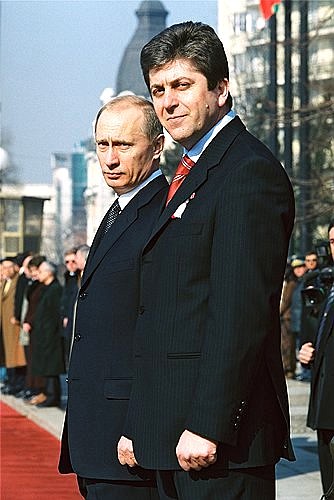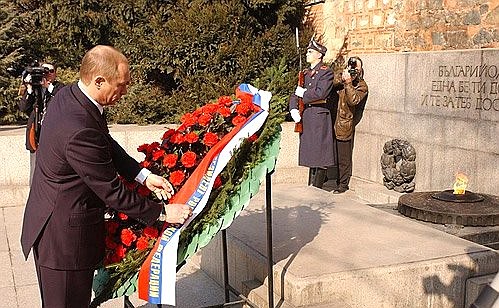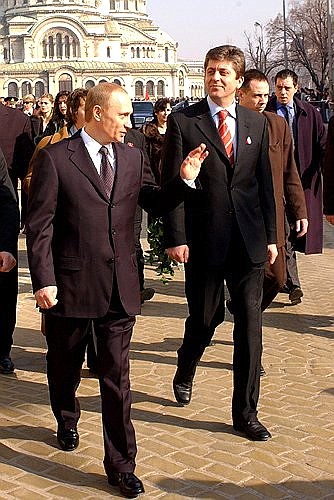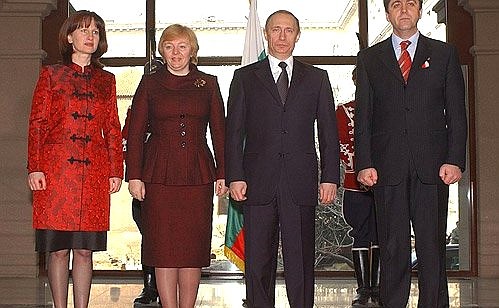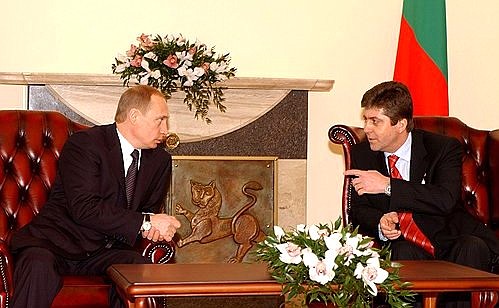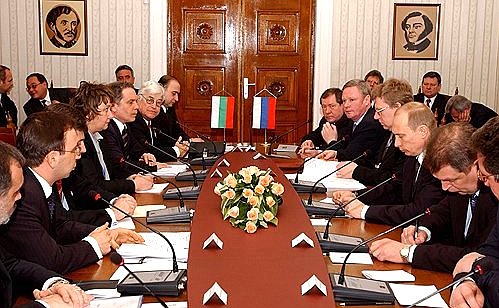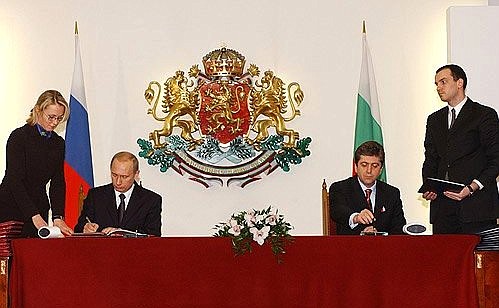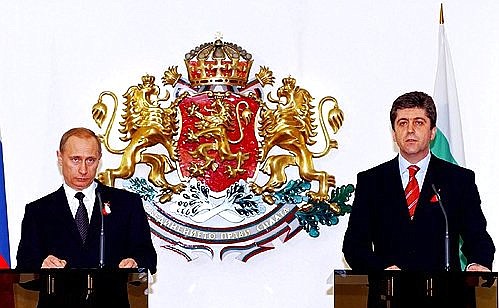Inter-state consultations took place during President Vladimir Putin’s state visit to Bulgaria.
Bulgarian President Georgi Parvanov warmly welcomed President Vladimir Putin on Alexander Nevsky Square. After the official greeting ceremony, Mr Putin laid wreaths at the monuments to the Unknown Soldier and the Tsar Liberator. The two countries’ leaders next went to the presidential palace.
Mr Putin and Mr Parvanov had a short one to one talk, after which members of their delegations joined the negotiations. They discussed many aspects of bilateral trade, economic, investment, military-technical and cultural partnership. They also considered prospects for broadening energy partnership and the construction of additional oil and gas pipelines. The Russian party expressed its interest in the privatisation of certain projects in the Bulgarian fuel and energy complex. Mr Putin said that Russian companies were ready to increase natural gas transits to other Balkan countries via Bulgaria from 12 to 18 billion cubic metres.
The talks also concerned the procedure of payments by Russia of the Soviet debt to Bulgaria. Mr Putin said that bilateral relations in the credit sphere were very positive, and that a part of the Soviet debt could be paid in hard currency. The mechanism would be also elaborated for Soviet debt payment through commodity exports and contracts with Bulgarian ship-repairing companies.
The Russian and Bulgarian Presidents exchanged opinions on relevant global and regional problems—in particular, the situation in the Balkans and around Iraq.
The heads of state adopted the joint declaration On the Further Deepening of Friendship and Partnership between Russia and Bulgaria. The delegations signed a number of inter-governmental and inter-regional agreements in the Presidents’ presence.
Mr Putin and Mr Parvanov concluded the negotiations with press statements and a news conference, during which the Russian President expressed his satisfaction with the achievements of Russian-Bulgarian discussions. As he said, they not merely put an end to a long break in bilateral high-level contacts but helped to raise Russian-Bulgarian relations to the level of constructive partnership.
As he was talking to journalists, Mr Putin also mentioned the Iraqi problem. He confirmed the Russian stance, according to which the crisis in Iraq could and must be settled by peaceful means alone and in conformity with the norms and principles of international law. As he acknowledged, the Russian and Bulgarian positions on that matter did not fully coincide. He did not comment on the Bulgarian opinion, saying only that every country had the right to independently determine its foreign policy proceeding from its national interests.
Mr Putin said that the European Union was rather late to determine its consolidated position on Iraq, thus making many European countries face a trying choice. The situation made it rather difficult to work out a balanced approach amongst the entire international community to the settlement of the Iraqi problem.
